Discover the Women of the Hall
These are the Inductees of the National Women’s Hall of Fame. Select any of the women to discover their stories and learn how they have influenced other women and this country.
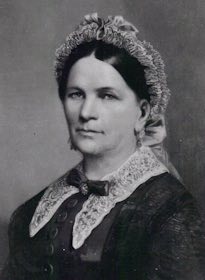 Sophia Smith
Education, Philanthropy
1796
Massachusetts
2000
Sophia Smith
Education, Philanthropy
1796
Massachusetts
2000

Sophia Smith
Born to a family known for its frugality and thrift, she was left at the age of 65 as the sole survivor of her immediate family, and with the funds to endow the establishment of Smith College, an institution that she hoped would provide undergraduate education for young women equal to that provided at the time for young men.
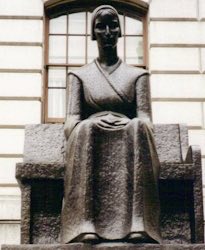 Mary Barret Dyer
Humanities
1611
England
2000
Mary Barret Dyer
Humanities
1611
England
2000

Mary Barret Dyer
Disenfranchised and banished from the Massachusetts Bay Colony along with Anne Hutchinson, she moved back to England, where she became a protégé of George Fox, the founder of Quakerism. Returning to Boston, she was arrested, imprisoned and expelled for preaching the Quaker faith. Returning to Boston again and again, she stood beside other condemned Quakers and finally was herself arrested and hanged. Her martyr’s death contributed to the move for religious tolerance in the colonies.
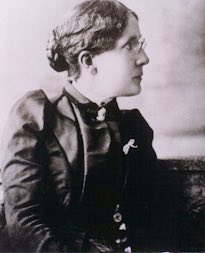 Frances E. Willard
Humanities
1839
New York
2000
Frances E. Willard
Humanities
1839
New York
2000

Frances E. Willard
As second president of the Women’s Christian Temperance Union (WCTU), she led the largest organization of women in the United States. The WCTU provided a base for the 20th century women’s rights movement, supporting, in addition to women’s suffrage, broad social reforms such as equal pay for equal work, the eight hour day, and the protection of women and children in the workplace.
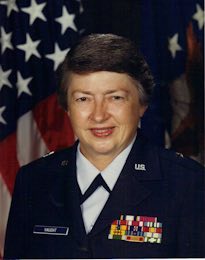 Wilma L. Vaught
Government
1930
Illinois
2000
Wilma L. Vaught
Government
1930
Illinois
2000

Wilma L. Vaught
One of the most decorated military women in U.S. history, Brigadier General Vaught, USAF, Retired, broke through many gender barriers to achieve a series of “firsts” that paved the way for military women serving today. She may be best known and most revered for her 12-year quest to permanently honor women in the military, raising over $45 million to build a major national memorial. The stunning 33,000 sq. ft. Women in Military Service for America Memorial facility and education center stands today at the gateway to Arlington National Cemetery.
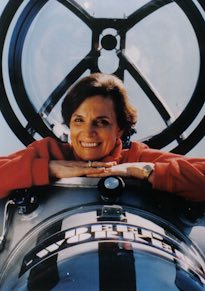 Sylvia A. Earle
Science
1935
New Jersey
2000
Sylvia A. Earle
Science
1935
New Jersey
2000

Sylvia A. Earle
An undersea explorer since age 13, Earle became an internationally recognized marine biologist, author, lecturer and scientific consultant. Denied the opportunity to participate in the U.S. Navy “Tektite Project” to study the ocean, she founded “Tektite II”, an all-female expedition that spent two weeks exploring the ocean floor. The founder of two companies to design and build undersea vehicles, she is chief scientist and consultant to oceanographic and marine research centers throughout the world.
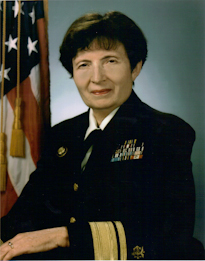 Faye Glenn Abdellah
Science
1919
New York
2000
Faye Glenn Abdellah
Science
1919
New York
2000

Faye Glenn Abdellah
First nurse to hold the rank of Rear Admiral and the title of Deputy Surgeon General for the United States. She developed the first tested coronary care unit. A national pioneer in nursing research, she has authored or co-authored more than 150 publications and helped change the focus of nursing from disease-centered to patient-centered.
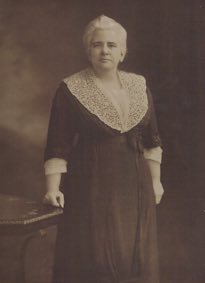 Anna Howard Shaw
Humanities
1847
England
2000
Anna Howard Shaw
Humanities
1847
England
2000

Anna Howard Shaw
A leader in the women’s suffrage movement, Shaw was a master orator for social justice, and the first woman to be ordained by the Protestant Methodist Church. She was the first living American woman to be awarded the U.S. Distinguished Service Medal.
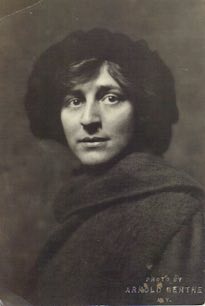 Crystal Eastman
Humanities
1881
Massachusetts
2000
Crystal Eastman
Humanities
1881
Massachusetts
2000

Crystal Eastman
One the major leaders of the women’s right to vote and equal rights movements, she was co-founder of the American Civil Liberties Union and author of the first national labor safety law guidelines. In 1919, she organized the First Feminist Congress, and she was one of the four authors of the Equal Rights Amendment proposed in 1923.
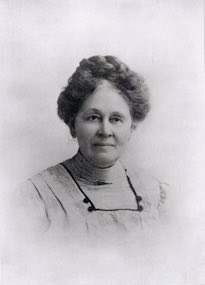 Emma Smith DeVoe
Humanities
1848
Illinois
2000
Emma Smith DeVoe
Humanities
1848
Illinois
2000

Emma Smith DeVoe
President of the Washington Equal Suffrage Association, successfully ran the campaign that resulted in Washington becoming the first state in the 20th century to grant full enfranchisement to women in 1910, a full decade before passage of the 19th Amendment. DeVoe established the first national organization of voting women, which eventually merged with the National League of Women Voters, leaving an invaluable legacy about the importance of the educated use of the franchise.
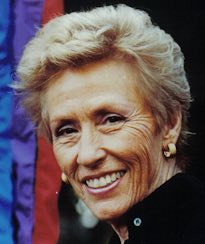 Jeanne Holm
Government
1921
Oregon
2000
Jeanne Holm
Government
1921
Oregon
2000

Jeanne Holm
In her 33 years in the Armed Forces from 1942 to 1975, Major General Holm, USAF, Retired, rose from private to two-star general. Her promotion in 1973 made her the first woman in the history of the U.S. armed forces to achieve the rank of major general. Her work to open ROTC and the military academies to women gave educational benefits and the opportunity for a professional military career to women from all walks of life.
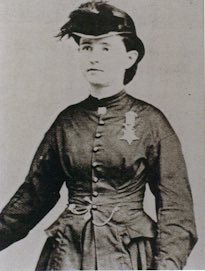 Mary Edwards Walker
Philanthropy, Science
1832
New York
2000
Mary Edwards Walker
Philanthropy, Science
1832
New York
2000

Mary Edwards Walker
First female surgeon in the U.S. Army, she continually crossed the Confederate lines to treat civilians. After being taken prisoner in 1864 and imprisoned in Richmond, she was awarded the Congressional Medal of Honor, the first woman to receive this award. In 1917, her medal, along with 910 others, was taken away when Congress revised the standards to include only “actual combat with the enemy.” She refused to return the medal, wore it until her death, and it was finally awarded to her posthumously.
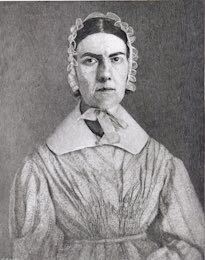 Angelina Grimké Weld
Humanities
1805
South Carolina
1998
Angelina Grimké Weld
Humanities
1805
South Carolina
1998

Angelina Grimké Weld
Along with Sarah Grimké, wrote numerous published papers which championed abolition and women’s rights. The Grimké sisters were southerners who became the first female speakers for the American Anti-Slavery Society. Sarah’s Letters on the Equality of the Sexes exposed the plight of factory women in New England, as well as arguing on behalf of women’s rights and abolition. Through their examples and their words, the Grimkés proved that women could affect the course of political events and have a far-reaching influence on society.
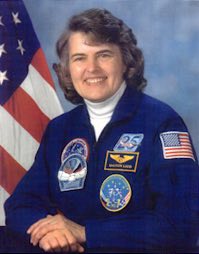 Shannon W. Lucid
Science
1943
1998
Shannon W. Lucid
Science
1943
1998

Shannon W. Lucid
A commercial, instrumental and multi-engine-rated pilot, Dr. Shannon Lucid was a member of the first astronaut class to admit women (1979). In her more than 30 year tenure with NASA, she served in various capacities and participated in five space flights. Dr. Lucid was the first woman to hold an international record for the most flight hours in orbit by any non-Russian, and, until June 2007, she held the record for the most flight hours in orbit by any woman in the world – 5,354 hours or 223 days in space.
 Julia Ward Howe
Humanities
1819
New York
1998
Julia Ward Howe
Humanities
1819
New York
1998

Julia Ward Howe
Suffragist and author of “Battle Hymn of the Republic.” Howe was a lecturer on religious subjects, a playwright and an organizer of a women’s peace movement. Co-founder (with Lucy Stone et al) of the New England Women Suffrage Association, she lectured and wrote extensively in support of the freedom of women to have an equal place with men in both public and private life.
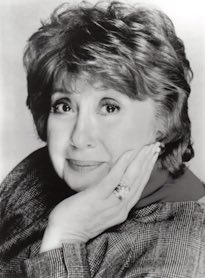 Beverly Sills
Arts
1929
New York
1998
Beverly Sills
Arts
1929
New York
1998

Beverly Sills
Acclaimed Soprano who became the first woman General Director and then President of the New York City Opera, and later first woman chair of the Lincoln Center for the Performing Arts, guiding the Center to become one of the nation’s most important institutions. She was not only directly responsible for the discovery and launch of many young performers, but was also actively involved in a myriad of humane works, including the National Victim Center and (as National Chair) the March of Dimes Mothers March on Birth Defects.
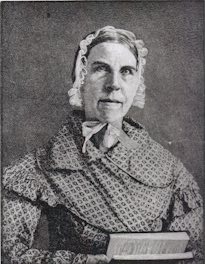 Sarah Grimké
Humanities
1792
South Carolina
1998
Sarah Grimké
Humanities
1792
South Carolina
1998

Sarah Grimké
Along with Angelina Grimké Weld, who wrote numerous published papers which championed abolition and women’s rights. The Grimké sisters were southerners who became the first female speakers for the American Anti-Slavery Society. Sarah’s Letters on the Equality of the Sexes exposed the plight of factory women in New England, as well as arguing on behalf of women’s rights and abolition. Through their examples and their words, the Grimkés proved that women could affect the course of political events and have a far-reaching influence on society.
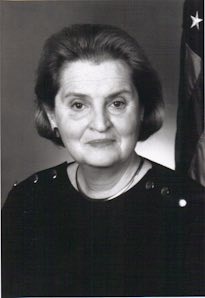 Madeleine Korbel Albright
Government
1937
Czechoslovakia
1998
Madeleine Korbel Albright
Government
1937
Czechoslovakia
1998

Madeleine Korbel Albright
First female Secretary of State and highest ranking woman in the U.S. government under President Clinton. As a professor at Georgetown University, she taught undergraduate and graduate courses in international affairs and Russian and Central and Eastern European politics. In President Clinton’s first term, she was the U.S. Permanent Representative to the United Nations and a member of the National Security Council.
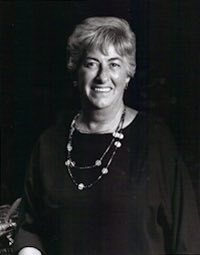 Rozanne L. Ridgway
Government
1935
Minnesota
1998
Rozanne L. Ridgway
Government
1935
Minnesota
1998

Rozanne L. Ridgway
Foreign policy advisor under six consecutive U.S. presidents from Richard Nixon to William Clinton. Beginning in 1975, she served as Deputy Assistant Secretary of State; her last appointment was Assistant Secretary of State for European and Canadian Affairs. A former Chair of the Atlantic Council of the U.S., a foreign policy think tank, her work has spanned almost four decades.
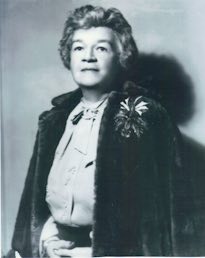 Edith Nourse Rogers
Government
1881
Maine
1998
Edith Nourse Rogers
Government
1881
Maine
1998

Edith Nourse Rogers
Massachusetts Congresswoman who introduced the “G.I. Bill of Rights” Act and Women’s Army Auxiliary Corp (WAC) legislation. The “Bill of Rights” guaranteed veterans’ health and education benefits (also small business loans). In addition, it supported research and development of prosthetic appliances. Rogers pushed for equality for women in and out of military until her death.
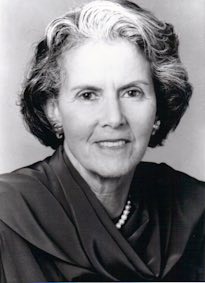 Felice N. Schwartz
Business
1925
New York
1998
Felice N. Schwartz
Business
1925
New York
1998

Felice N. Schwartz
Founder in 1962 of Catalyst, the premier organization working with corporations to foster women’s leadership. She published studies (Women in Corporate Leadership in 1990 and Women in Engineering in 1992) illustrating the barriers to women’s workplace progress and then provided samples of model corporate practices to help women advance. Her work has had a lasting impact on the composition of American corporate leadership.
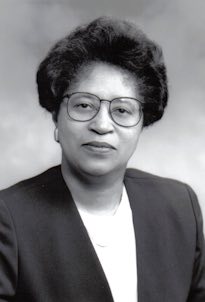 Shirley Ann Jackson
Education, Science
1946
District of Columbia
1998
Shirley Ann Jackson
Education, Science
1946
District of Columbia
1998

Shirley Ann Jackson
First woman to chair the United States Nuclear Regulatory Commission and the first African American woman to serve on the Commission. Elected a Fellow of the American Physical Society for her contribution to physical science, she became an advocate for women in the areas of science, education and public policy. As Chair of NRC, she rearticulated the vision of the NRC to include reaffirmation of the basic health and safety mission of the agency.
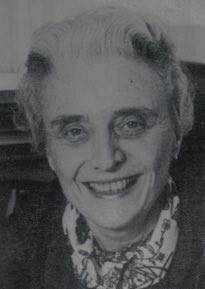 Mary Steichen Calderone
Education, Humanities
1904
France
1998
Mary Steichen Calderone
Education, Humanities
1904
France
1998

Mary Steichen Calderone
Pioneering sex educator and acknowledged “mother of sex education.” She established the Sex Information and Education Council of the United States, which established sexuality as a healthy entity. Dr. Calderone was President of the SIECUS board, as well as author and co-author of several books, professional journals and magazine articles.
 Maya Angelou
Arts
1928
Missouri
1998
Maya Angelou
Arts
1928
Missouri
1998

Maya Angelou
Poet, author and early Civil Rights advocate. Angelou’s early career was in the theater, and she co-wrote Cabaret for Freedom to raise funds for the Southern Christian Leadership Conference, for which she later became northern coordinator. She raised social consciousness through writings such as I Know Why the Caged Bird Sings and The Heart of a Woman. She was a nominee for a Tony, an Emmy, and a Pulitzer Prize.
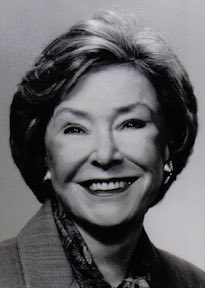 Joan Ganz Cooney
Arts, Business, Education
1929
Arizona
1998
Joan Ganz Cooney
Arts, Business, Education
1929
Arizona
1998

Joan Ganz Cooney
Founder of the Children’s Television Workshop for Public Television and creator of Sesame Street. Cooney created a study for the Carnegie Corporation on the possible use of television for preschool education. Acting on her own findings, she solicited funds to develop a program for television. For this, she was the winner of the Emmy and Peabody Awards, along with other honors.
